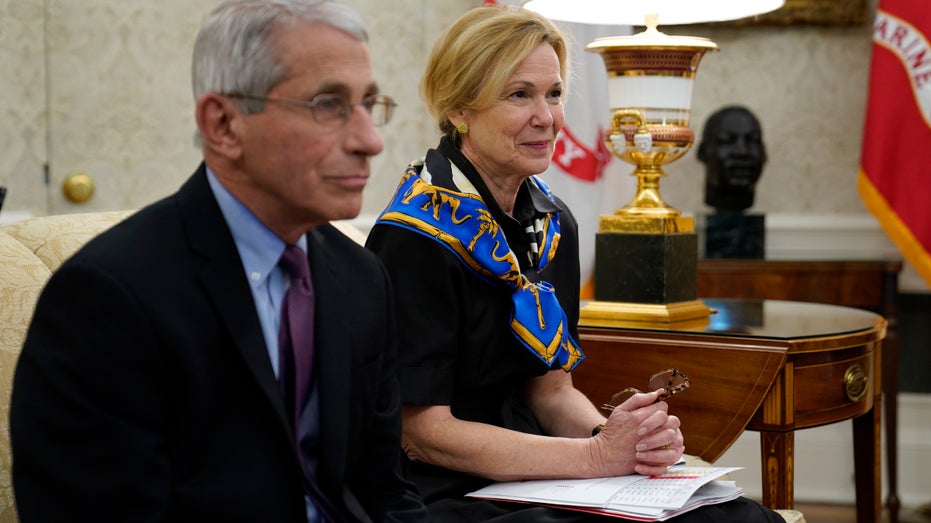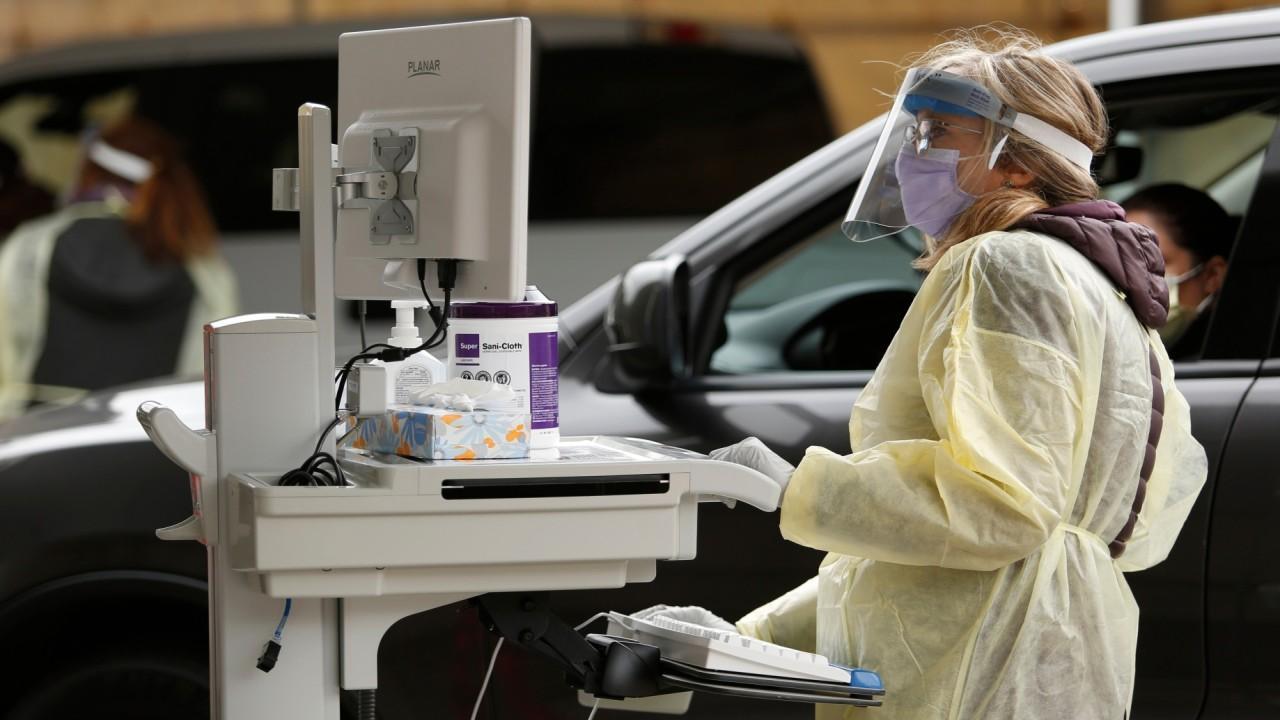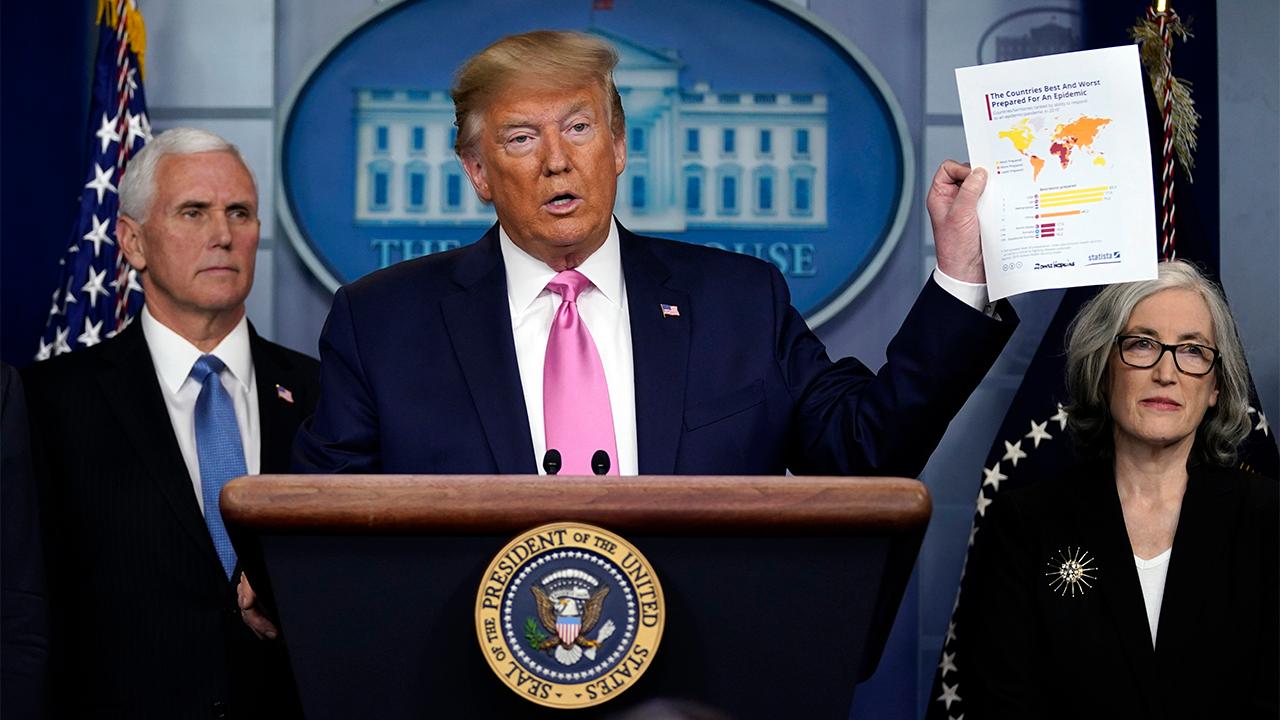Coronavirus task force winding down: White House
'We can't keep our country closed for the next five years,' Trump said
Get all the latest news on coronavirus and more delivered daily to your inbox. Sign up here.
President Trump confirmed the White House's plan Tuesday to wind down its coronavirus task force over the next few weeks during a visit to a Honeywell manufacturing plant in Arizona. While he acknowledged that the mission to defeat the virus has not yet been accomplished, he believes it's time to start re-opening the country.
"We can't keep our country closed for the next five years," Trump said. “Will some people be affected? Yes. Will some people be affected badly? Yes. But we have to get our country open and we have to get it open soon.”
Trump said the administration will continue to look at the virus "very closely" and he will still consult with public health officials like Dr. Anthony Fauci and Dr. Deborah Birx even if the task force is disbanded.
The plan comes as state and local governments begin easing stay-at-home orders and social distancing measures put in place to mitigate the spread of the pandemic.
JOHNS HOPKINS: LEAKED COORNAVIRUS MODEL ON DEATH SPIKE NOT FINAL
Speaking to reporters in Washington on Tuesday before Trump made his remarks, the head of the task force, Vice President Mike Pence, said it could wind down completely by early June and responsibilities could transition to other government agencies like FEMA.
“I think we’re starting to look at the Memorial Day window, early June window as a time when we could begin to transition back to having our agencies begin to manage -- begin to manage our national response in a more traditional manner,” Pence said. "It really is all a reflection of the tremendous progress we've made as a country."
Formed in March, the task force has met frequently to address the rapidly spreading pandemic and explained its work in nightly news briefings with the president that often spanned for more than an hour.

White House coronavirus response coordinator Dr. Deborah Birx, right, and Director of the National Institute of Allergy and Infectious Diseases Dr. Anthony Fauci attend a meeting about the coronavirus in the Oval Office Wednesday, April 29, 2020, in
Medical professionals included in the task force are the director of the National Institute of Allergy and Infectious Diseases Fauci, White House coronavirus response coordinator Birx, Surgeon General Jerome Adams, Director for the Centers of Disease Control and Prevention Dr. Robert Redfield, Food and Drug Administration Commissioner Stephen Hahn and Administrator of the Centers for Medicare and Medicaid Services Seema Verma.
Also on the task force are Trump administration officials, including Treasury Secretary Steven Mnuchin, National Economic Council Director Larry Kudlow, National Security Adviser Robert O'Brien, Secretary of Health and Human Services Alex Azar, Secretary of Veterans Affairs Robert Wilkie, Secretary of Housing and Urban Development Dr. Ben Carson, Acting Deputy Secretary of Homeland Security Ken Cuccinelli, and more.
GET FOX BUSINESS ON THE GO BY CLICKING HERE
There was immediate confusion after Pence's comments as Fauci contradicted the announcement in an interview with CBS News, saying winding down the task force is not the administration's plan.
“That’s not true, I’ve been in every task force meeting, and that’s not what they are doing," Fauci said.
White House Press Secretary Kayleigh McEnany took to Twitter to clear up reporting on the announcement, saying it was being "misconstrued to suggest the White House is no longer involving medical experts."
"This is totally false," McEnany said. "President @realDonaldTrump will continue his data-driven approach towards safely re-opening."
The administration said during the briefing it will also continue its work to scale up testing and build up the national stockpile.
CLICK HERE TO READ MORE ON FOX BUSINESS
The New York Times was the first to report on the administration's plans to disband the task force.
According to the latest update by Johns Hopkins University, there are more than 1.1 million confirmed coronavirus cases and more than 70,000 deaths in the United States.





















